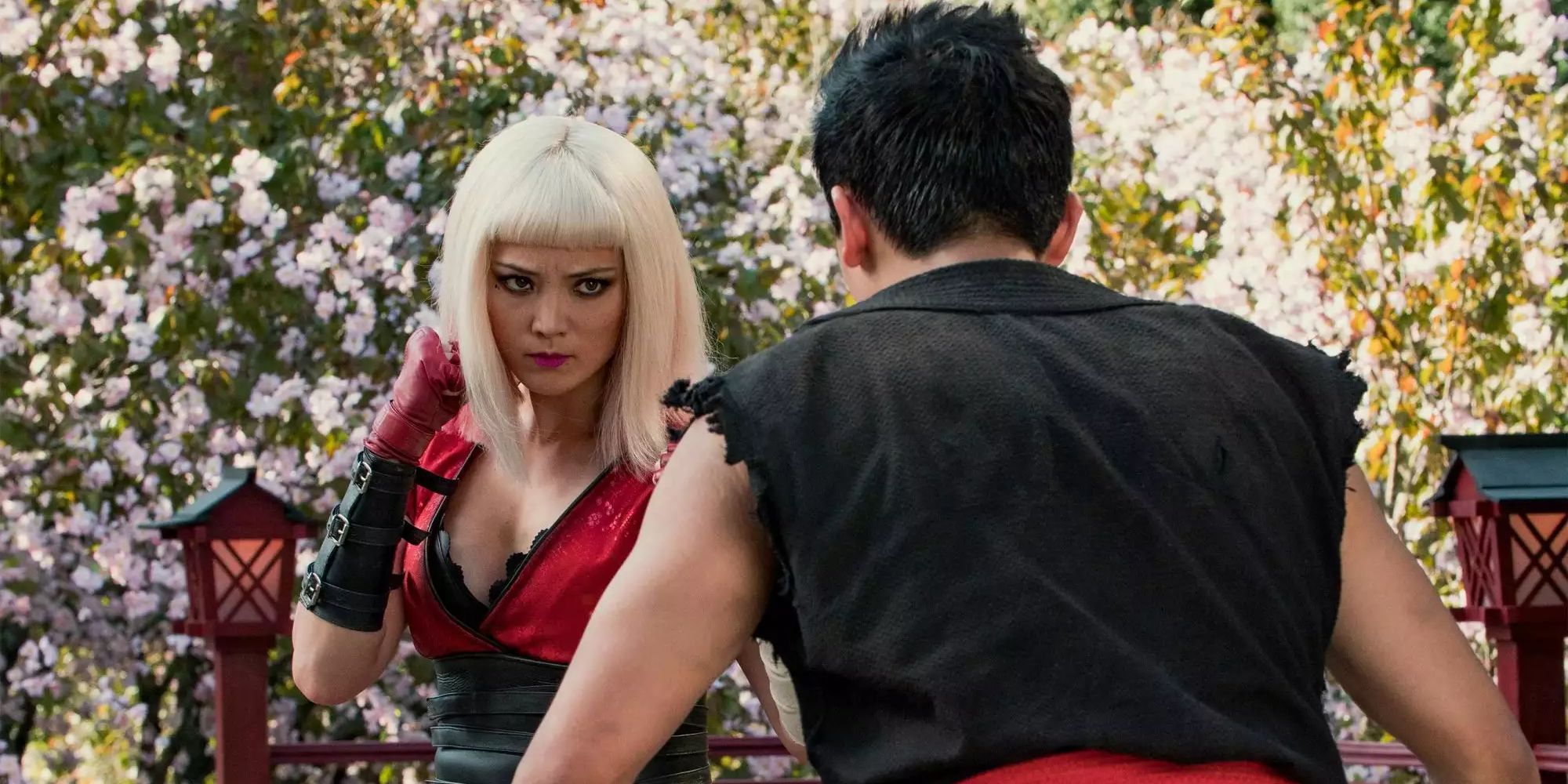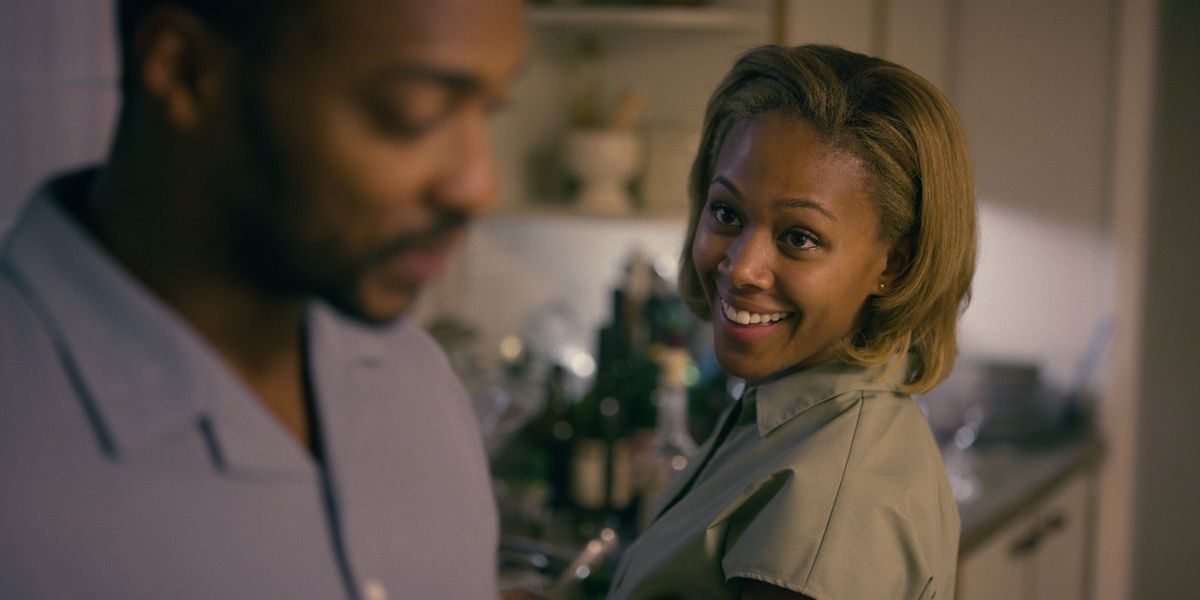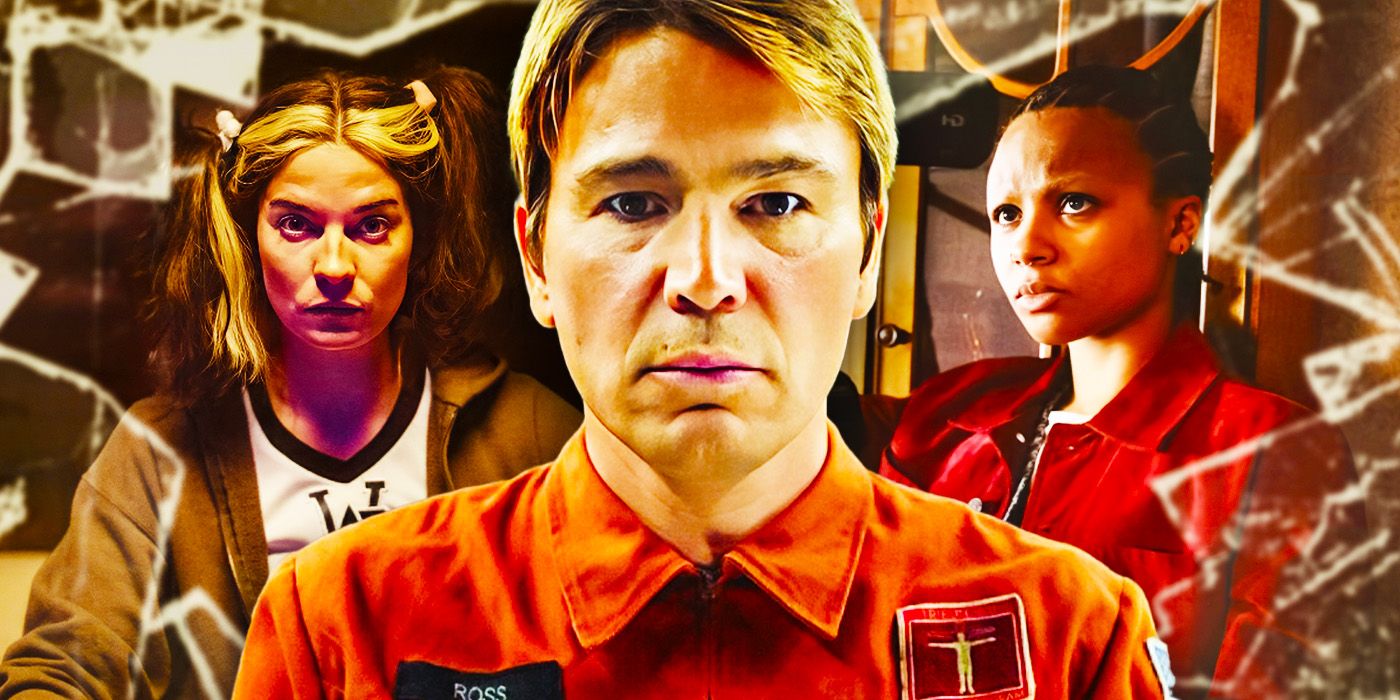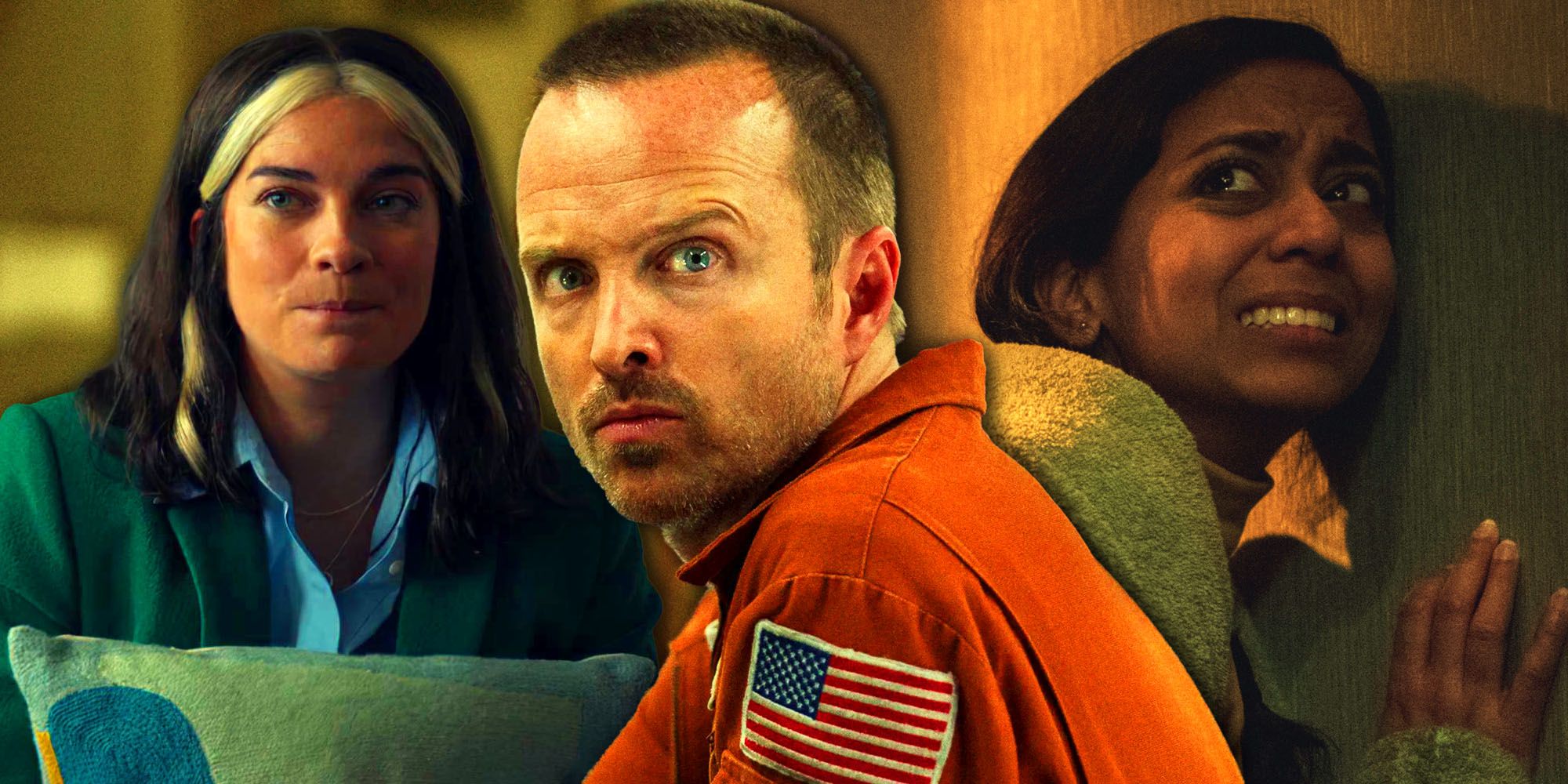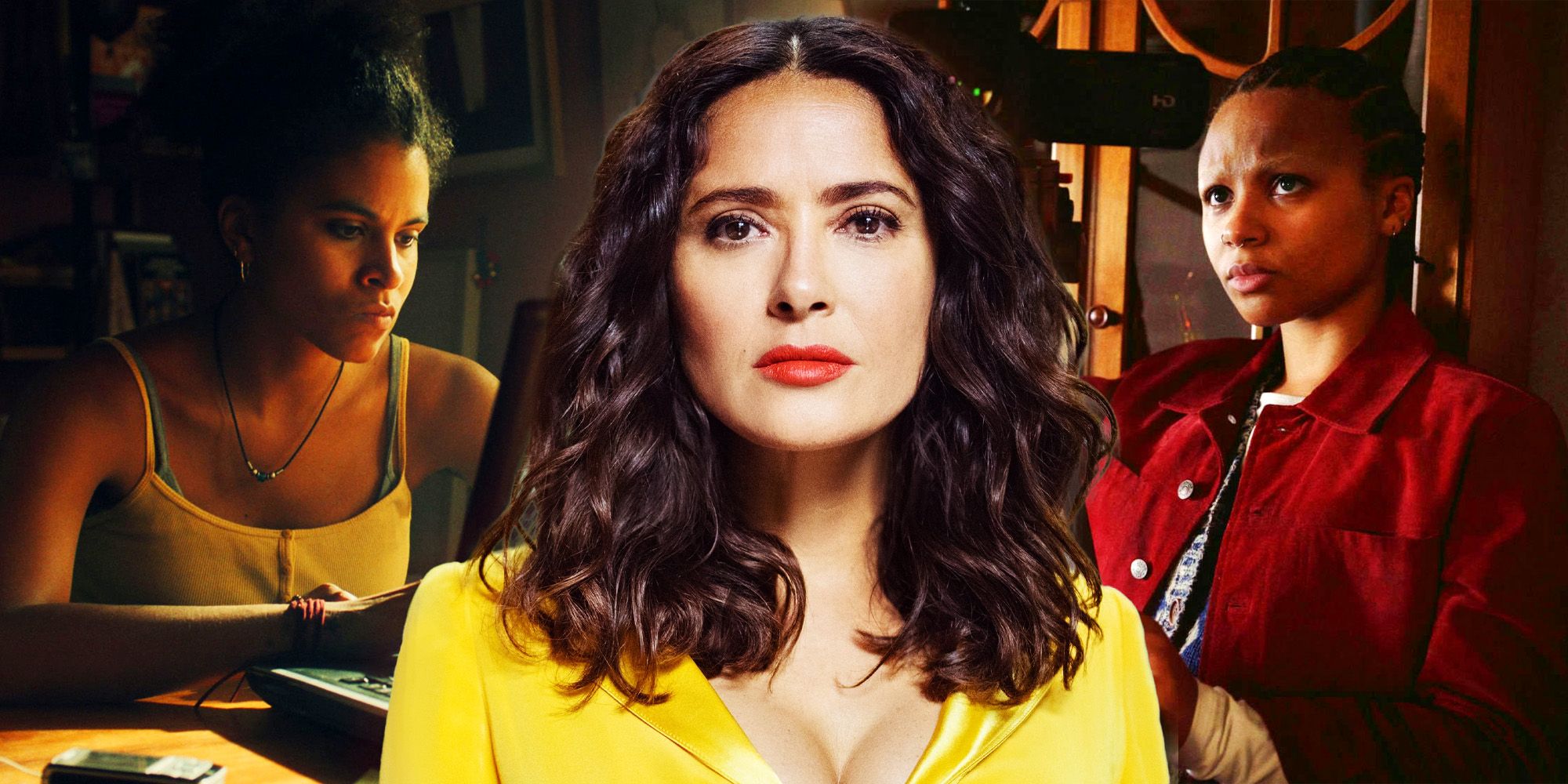
Unraveling the Mind-Bending Conclusion of Black Mirror's 'Striking Vipers'

Black Mirror's 'Striking Vipers' delves into the intricate dynamics of desire, responsibility, and the blurred boundaries between fantasy and reality in the digital age, examining the impact of the online world on one's sexuality
The fifth season of Black Mirror kicks off with "Striking Vipers," directed by Owen Harris, known for his work on "San Junipero" and "Be Right Back." This thought-provoking episode delves into the complexities of relationships in the digital age, presenting a somewhat sorrowful (and highly unsettling) tale of intimacy between two close friends.
During an interview with EW, Charlie Brooker, the creator of Black Mirror, referred to the ending as "pragmatically romantic." However, as is typical of Black Mirror, whether or not this claim holds true is a topic up for discussion.
What Is Black Mirror’s ‘Striking Vipers’ About?
The episode kicks off with Danny Parker (portrayed by Anthony Mackie, known as the MCU's new Captain America) engaging in a playful act with his girlfriend Theo (Nicole Beharie) at a club. After their return home and a passionate encounter, Danny joins his roommate Karl Houghton (Yahya Abdul-Mateen II) in playing Striking Vipers, a video game resembling Street Fighter. This scene, hinting at future events, concludes with Karl teasingly imitating sexual activity while ridiculing Danny.
Fast-forward 11 years: Danny has settled into suburban life with Theo, with whom he shares a 5-year-old son. Struggling with a knee injury and a perpetually distant demeanor, he appears a mere shadow of his once vibrant self. His evenings consist of reading the same bedtime story to his child, playing Tetris, and ensuring dishes are properly rinsed before placing them in the dishwasher. Meanwhile, Karl clings onto his youthful existence, residing in a luxurious bachelor pad in the city and pursuing younger women on dating apps. He is involved with a singer named Mariella (Fola Evans-Akingbola), but their relationship is shown to lack depth as he struggles to connect with her.
During Danny's 38th birthday barbecue at his house, Karl unexpectedly shows up after a year of no contact and surprises him with a gift - the newly-released Striking Vipers X game and a virtual-reality console resembling the one featured in the "USS Callister" episode. Later that night, Danny and Karl decide to play the game, assuming the roles of their favorite characters from the past: Danny as the muscular Lance dressed in an open vest, and Karl as the fighter Roxette, dressed provocatively like the character portrayed by Pom Klementieff from Guardians of the Galaxy.
As they both lie motionless on their respective couches, they become fully immersed in the virtual world, experiencing the intense sensations of their chosen characters during exhilarating battles set in a fantastical realm. At the end of one particularly intense fight, they share a surprising kiss, but Danny abruptly disconnects from the game. The next day, they attribute the momentary lapse to alcohol, yet their virtual avatars grow more intimate with each other. The lines between reality and the virtual world become blurry as Danny, as Lance, insists that this connection they have doesn't feel like a "gay thing," leading to their ongoing secret encounters within the game.
How Does ‘Striking Vipers’ End?
This puts a strain on Danny's marriage, causing him to no longer sleep with Theo. On their anniversary, a stranger approaches Theo while she waits for Danny at a bar. Sometimes, Theo catches glimpses of her aging reflection in the mirror. She rejects the stranger's advances but secretly feels flattered. Later, with tears in her eyes, Theo asks Danny if he is having an affair and wonders if her changing body is the reason for their distance. Danny denies it but realizes he must end his friendship with Karl. He shares his decision with Karl and locks away the game, despite Karl's protests that "it's not cheating, it's not real," comparing it to watching explicit content.
The narrative continues 7 months later, as Danny's birthday rolls around once again. To Danny's surprise, a pregnant Theo arranges for Karl, with whom Danny has had no contact for months, to join them for dinner. Seizing the opportunity when Theo is out of earshot, Karl confides in Danny about his various physical encounters, both with computer-generated characters and real-life players. Yet, he emphasizes that none of these experiences can compare to the extraordinary connection he shared with Danny. Pushing for another rendezvous, Karl eventually persuades a hesitant Danny to give in.
Later that night, Karl, disguised as Roxette, confesses his love for Danny in a post-coital haze. In response, Danny proposes meeting in person at their usual hangout to explore their connection. In an attempt to test their compatibility, they decide to share a real-life kiss. However, they both discover that they lack genuine attraction for one another. When Danny suggests putting an end to their arrangement, Karl becomes furious, leading to a physical altercation that attracts police attention. After being released from jail, Danny's ride, Theo, demands the truth.
Although not explicitly depicted, a shocking revelation unfolds in the final scene, hinting at Karl's confession. The following year, Danny celebrates his birthday and exchanges small boxes with Theo. They reach a compromise: while Danny "plays" the game with Karl on this special evening, Theo is permitted to temporarily remove her wedding ring and rendezvous with a stranger at a bar, presumably for a casual encounter.
The conclusion remains uncertain regarding whether Danny and Karl are gay or bisexual. In one instance, Danny contemplates flirting with Karl through text, but ultimately refrains due to his own uncertainty about his emotions. Similarly, Karl struggles to engage in sexual activity with his girlfriend. The final scenes show Karl living alone with a cat, hinting at his resignation towards pursuing real-life relationships.
Nevertheless, it is likely that the episode does not intend to definitively address their sexual orientations. Rather, "Striking Vipers" focuses more on themes such as sexual fluidity, modern relationships, infidelity, and even video game addiction. It delves into how sexuality may evolve alongside technological advancements, particularly if one is experiencing a midlife crisis. The virtual world raises questions about the significance of gender and its potential translation into offline existence. As Harris summarized in an interview with Hollywood Reporter, the episode examines whether marriage, as a conventional concept of monogamy, can be augmented in order to sustain it.
